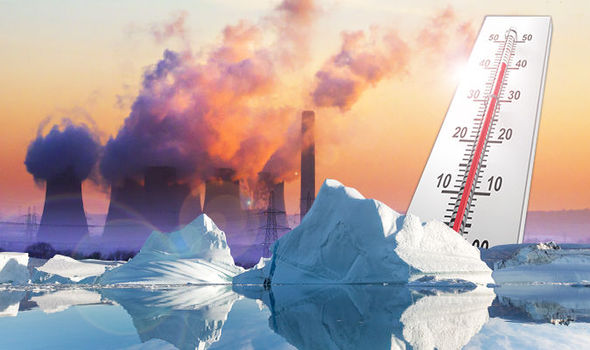

The Global Warming has become Global Heating
Climate change is likely to wipe off 7 percent of global GDP (gross domestic product) under a “business as usual” emissions scenario by 2100. The research has taken average global temperatures projection to rise over four degrees Celsius by the end of the century. This would cause the United States to lose 10.5 percent of its GDP by 2100 — a substantial economic hit, say researchers.
“Whether cold snaps or heat waves, droughts, floods or natural disasters, all deviations of climate conditions from their historical norms have adverse economic effects,” Dr Kamiar Mohaddes, a co-author of the study from Cambridge’s Faculty of Economics, said in a statement.
While the frosty neighbour in the north, Canada, which some claim will benefit economically from temperature increase, would lose a whopping 13 percent of its income by 2100. The research shows that keeping to the Paris Agreement limits the losses of both North American nations to under 2 percent of GDP.
[related_post]
“Canada is warming up twice as fast as the rest of the world. There are risks to its physical infrastructure, coastal and northern communities, human health and wellness, ecosystems and fisheries — all of which has a cost,” Mohaddes said.
The latest research was carried out by University of Cambridge, UK in collaboration with University of Southern California, USA, Johns Hopkins University, USA, National Tsing Hua University, Taiwan, and the International Monetary Fund.
Researchers say that 7 percent of global GDP is likely to vanish by the end of the century unless “action is taken.” Japan, India and New Zealand lose 10 percent of their income. Switzerland is likely to have an economy that is 12 percent smaller by 2100. Russia would be lose 9 percent of its GDP, with the UK will shed 4 percent.
The working paper warns against bigger economic loses if the countries continue to emit greenhouse gases that may push the thermometers 0.04 °C every year. However in contrast, if the countries are able to cut their emissions in line with the Paris Climate Agreement the effect could be limited to about 1.1 percent of loss in GDP per capita.
The study, released on Monday, underlined the overarching findings that climate change will bring economic losses to the developed and developing world equally unlike the common perception that tropical countries face more danger than others.
1. The mandate for blending Compressed Biogas (CBG) with natural gas has come into effect…
Andhra Pradesh is striving towards greening its energy sector with quite some speed. In a…
With an objective to bolster India’s green energy goals, a Tripartite Agreement has been signed…
The Union MNRE Minister Pralhad Joshi launched the Green Hydrogen Certification Scheme of India (GHCI)…
India’s energy conglomerate Bharat Petroleum Corporation Limited (BPCL) has commissioned a 5MW green hydrogen plant…
In a historical development, the European Space Agency (ESA) has successfully launched its pioneering ‘Biomass’…